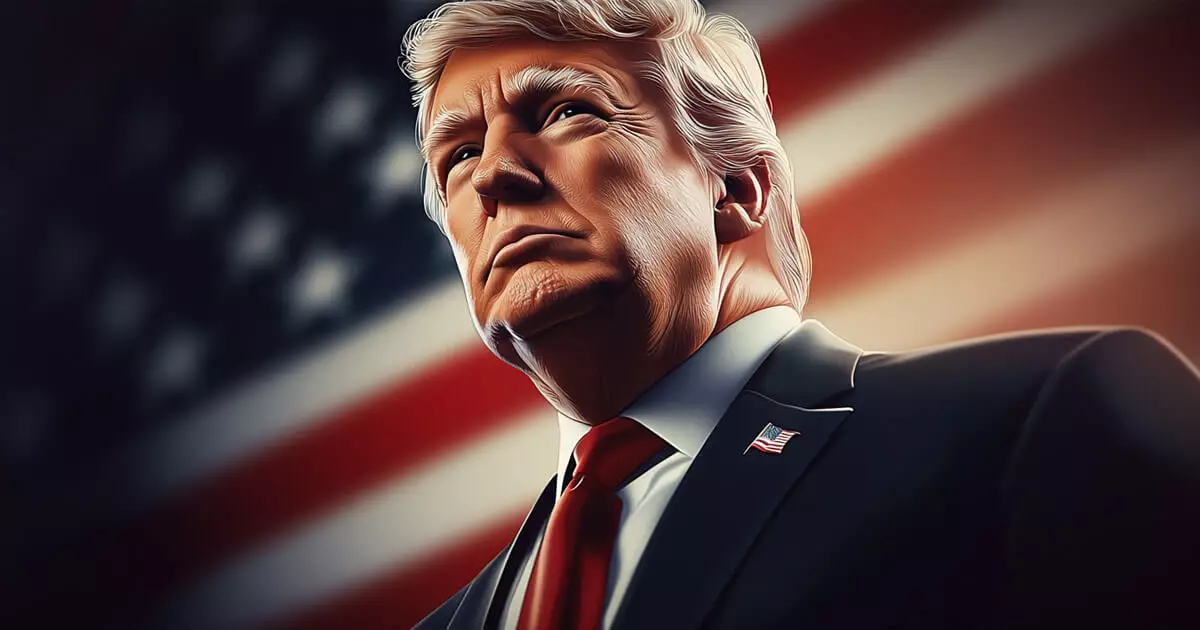The cryptocurrency market has proven to be a volatile landscape, incredibly sensitive to shifts in regulatory enforcement. With Donald Trump returning to the presidency, hints of a less stringent approach towards crypto enforcement have emerged, reflecting a broader trend of reallocated governmental priorities. Campaign promises made during his election bid signal a shift in focus that could alter the path of regulatory scrutiny significantly. This anticipated transition begs the question: What does this new regulatory climate mean for the cryptocurrency industry and its stakeholders?
Government officials and legal experts recently convened in New York, revealing that, under Trump’s leadership, cryptocurrency fraud enforcement may no longer be a top priority. Instead, a recalibration of resources is expected, with immigration law drawing more attention. Scott Hartman, who co-leads the securities and commodities task force in Manhattan, indicated that the department’s focus will shift considerably, allocating fewer legal resources to crypto-related investigations. The previous ‘crypto winter,’ marked by a series of collapses within the industry, had led to a more pronounced emphasis on enforcement; however, this stance appears poised for a major overhaul.
Trump’s policy direction indicates a preference for addressing matters that align with campaign promises, such as immigration enforcement. As Hartman stated, their office will likely be understaffed and less engaged in cryptocurrency investigations as they redirect efforts. This may result in fewer cases pursued compared to the peak enforcement days of 2022.
The Implications of Leadership Changes
The anticipated appointment of Jay Clayton, a former SEC chair, as the new U.S. attorney in Manhattan has profound implications for how these enforcement strategies will evolve. During Clayton’s earlier tenure, the SEC’s approach to cryptocurrency was somewhat restrained compared to the aggressive tactics seen under the current chair, Gary Gensler. While Gensler’s active litigation against crypto firms signifies a heightened enforcement climate, Clayton’s history suggests a possible cooling phase.
The prevailing uncertainty surrounding Gensler’s future as SEC chair adds another layer of complexity. Many speculate whether Clayton’s return would signify a halt to ongoing litigations with prominent firms like Coinbase and Binance, which could reshape the operational framework for both regulators and industry players. The SEC’s independent status complicates the ability of the Trump administration to exert direct influence over its enforcement strategies.
As the cryptocurrency industry manages the repercussions of these unfolding developments, a climate of uncertainty permeates. The notable shift in focus from crypto enforcement to immigration policies may embolden some market actors while instilling trepidation in others who thrive on regulatory guidance. Ongoing debates surrounding investor protection and market stability will no doubt persist amid these changes.
Ultimately, the administration’s newfound focus could steer the cryptocurrency sector into uncharted territories, where innovation coexists with a less regulated environment. Stakeholders must remain vigilant and adaptive, keenly aware of how these political dynamics will shape the future of cryptocurrency regulation in the United States. As we examine these shifting tides, it becomes evident that the relationship between politics and crypto is as intricate as the industry itself.
















Leave a Reply